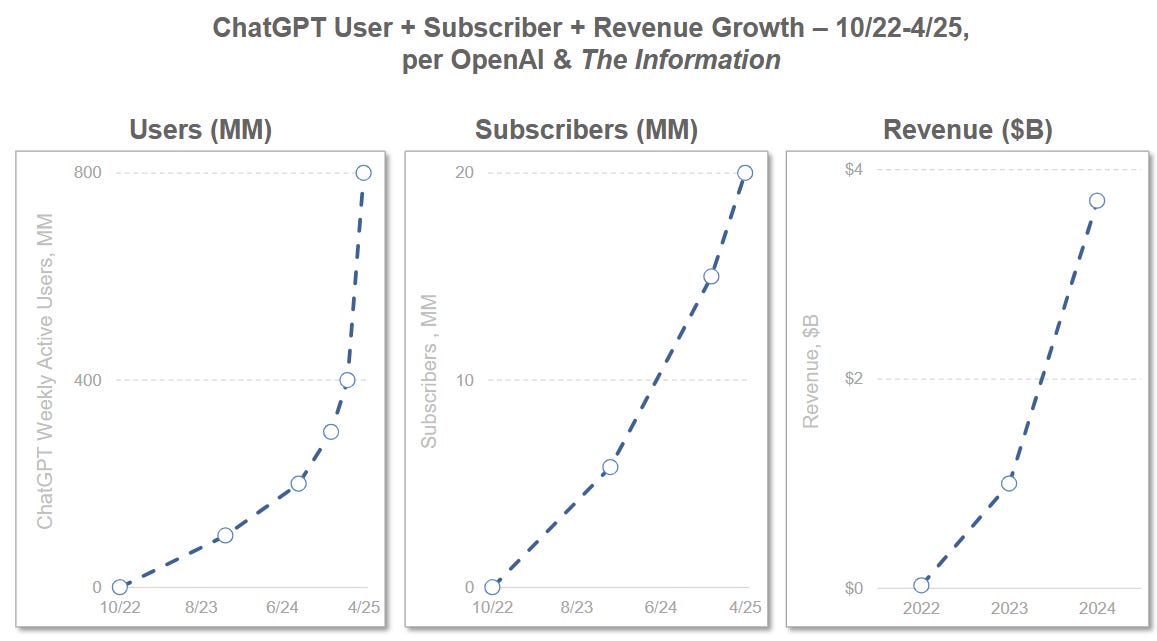Here are two noteworthy articles on AI. The first explores the societal impact of AI potentially displacing white-collar jobs, suggesting a future of abundance, possibly with UBI, but also amplified inequality. Some technologists believe this represents a final chance for wealth consolidation as AI establishes a rigid hierarchy. The Ai future could consist of:
The ability to buy results in the real world will dramatically go up
Human ability to wield power in the real world will dramatically go down (at least without money); including because:
there will be no more incentive for states, companies, or other institutions to care about humans
it will be harder for humans to achieve outlier outcomes relative to their starting resources
Radical equalising measures are unlikely
The second piece from BOND Capital on AI trends, unpacks where AI stands today. AI is at an interesting point, seeing rapid adoption, slow monetization, high costs to train new models and intense competition with low switching costs.
ChatGPT adoption has experienced exponential growth with 800M users, 20M subscribers and almost $4B in revenue in under 3 years since launch.
Relative to other apps/websites, ChatGPT is one of the most successful technology product launches ever.
Early ChatGPT usage is exceeding early Google.
According to ChatGPT itself, these are the use cases we can expect AI to perform over the next 5 years. Expect the capabilities of small teams to expand significantly.
This is how AI sees the opportunity set evolving over a longer time horizon.
In 7 years, the AI developer ecosystem, as a proxy for activity has increased by 6x.
Already, humans struggle to distinguish what is a human and what is AI.
As previously highlighted, AI is going to disrupt the media industry. We’ve gone from novelty to photo realistic images in 3 years.
Harvey, a legal AI start-up went from $10M to $70M ARR in fifteen months. It looks like AI is coming for that industry.
Waymo has surpassed Lyft in San Francisco within 18 months.
AI should continue to evolve from what looks like a neat toy to real world disruptive uses cases from biology to robotics to TV.
Just under half of American students are utilizing AI, leveraging uses cases such as starting papers, editing work, tutoring to career and relationship advice.
















